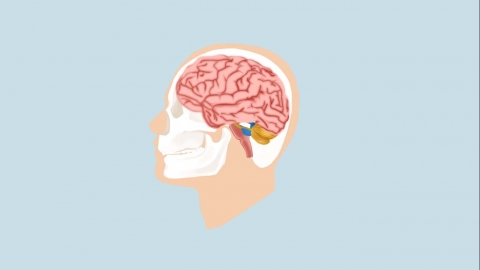How is pituitary dysfunction treated?
Generally, pituitary dysfunction may result from head trauma, long-term malnutrition, pituitary inflammation, pituitary adenoma, or pituitary apoplexy. It is recommended to seek timely medical attention, identify the underlying cause, and then improve the condition through general treatment, medication, surgical intervention, and other approaches under a doctor's guidance. A detailed analysis is as follows:

1. Head trauma: External impacts such as blows or falls may cause mechanical injury to the pituitary tissue, affecting hormone secretion. Mild trauma requires bed rest, avoiding strenuous activity, and close monitoring of consciousness and vital signs.
2. Long-term malnutrition: A prolonged deficiency in nutrients such as protein and vitamins can affect the supply of raw materials required for pituitary hormone synthesis, leading to functional impairment. Adjust the diet structure and increase intake of foods such as eggs, milk, and fresh fruits and vegetables.
3. Pituitary inflammation: Autoimmune reactions or infections can cause pituitary inflammation, leading to edema and reduced function of the pituitary tissue, which constitutes mild pathological damage. Patients should follow medical advice to take anti-inflammatory medications such as prednisone tablets, methylprednisolone tablets, or dexamethasone tablets to reduce the inflammatory response of the pituitary gland.
4. Pituitary adenoma: As a benign pituitary tumor gradually enlarges, it may compress surrounding normal pituitary tissue, causing functional impairment in the compressed area. Follow medical advice to use medications such as bromocriptine tablets, cabergoline tablets, or octreotide injection to inhibit tumor growth and regulate hormone levels. If the tumor is large, transsphenoidal pituitary adenoma resection may be necessary to remove the tumor, relieve the compression, and restore normal pituitary function.
5. Pituitary apoplexy: Sudden hemorrhage or infarction caused by pituitary adenoma or vascular abnormalities leads to acute pituitary injury, which is a more severe pathological condition. Emergency medical attention is required. Follow medical advice to administer medications such as mannitol injection, furosemide injection, or norepinephrine bitartrate injection to reduce intracranial pressure and stabilize circulation. When necessary, perform pituitary hematoma evacuation surgery to remove the hemorrhagic focus and reduce the risk of pituitary tissue necrosis.
Routinely maintain regular作息, avoid excessive fatigue, ensure balanced nutrition through diet, avoid repeated head trauma, and undergo regular follow-up evaluations of pituitary function to promote recovery.







